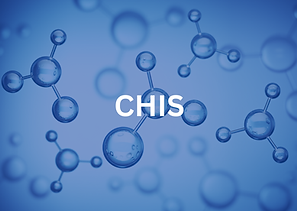EVERGi

SUSTAINABLE MULTI-ENERGY SYSTEMS
EVERGi focusses on the design and operation of multi-energy systems (integrating various thermal, electric, mechanical and (bio)chemical energy carriers) that don’t need fossil fuels and are financially feasible and socially accepted. For this purpose, EVERGi has developed a platform and self-learning energy management algorithms that can optimise societal and technical KPIs in real-time.
Special attention also goes to stakeholder engagement and the inclusion of key technologies to enable the energy transition such as electric powertrains for vehicles, automation, bidirectional charging infrastructure, and energy demand & supply forecasting.
In addition, EVERGi has proven its vast expertise in life cycle sustainability assessment of technologies, quantifying the societal impact of all these technologies, considering environmental as well as economic and social KPIs in a current as well as a future context.
EVERGi’s decarbonisation technologies & disciplines:
EVERGi’s projects:
EVERGi’s labs:
MOBI

ELECTROMOBILITY RESEARCH CENTRE
MOBI, is a multidisciplinary research center for electromobility that combines a unique mix of technical, environmental and socio-economic skills to develop sustainable electrification strategies supported by all stakeholders.
MOBI has vast expertise in many areas, ranging from electric and autonomous driving to pioneering batteries, intelligent drive systems, energy management, power electronics, digital twins, and charging infrastructure. Beyond technical developments, the focus is also on providing valuable insights into consumer behaviour, business and policy, while also exploring the integration of electric vehicles into multi-energy communities and smart grids. This interdisciplinary approach allows MOBI to serve as a one-stop shop, offering a comprehensive range of solutions to shape a sustainable and, electrified future.
MOBI’s decarbonisation technologies & disciplines:
MOBI’s projects:
MOBI’s labs:
BRITE

BRUSSELS INSTITUTE FOR THERMAL-FLUID SYSTEMS AND CLEAN ENERGY
BRITE is a Joint Research Group between two sister universities located in the heart of Europe: Université Libre de Bruxelles (ULB) and Vrije Universiteit Brussel (VUB). It brings together the FLOW (VUB) and the ATM (ULB) research groups.
BRITE conducts research on thermal-fluid systems for aeronautical, aerospace and energy applications. In this latter field, research is carried out on wind energy, bioenergy, hydrogen and e-fuels, heat recovery, heat networks and plasma-assisted combustion, with the aim to contribute to a clean, fair and smooth energy transition.
BRITE’s decarbonisation technologies & disciplines:
BRITE’s projects:
BRITE’s labs:
CHIS

DEPARTMENT OF CHEMICAL ENGINEERING
CHIS focuses on both basic and applied research in technology, using advanced computer modelling and experimental testing. Their research provides sustainable separation technologies designed for decarbonized chemical productions, by exploiting new possibilities in materials engineering, process intensification, and electrification strategies. Results are valorized in the fields of adsorptive Carbon Capture, purification and storage of renewable chemical energy carriers (e.g., biomethane, e-fuels), and downstream separation and purification in waste stream valorization processes (e.g., biomass to bio-alcohols).
CHIS’ decarbonisation technologies & disciplines:
CHIS’ projects:
CHIS’ labs:
SUME

SUSTAINABLE MATERIALS ENGINEERING
SUME novel design strategies for sustainable (hybrid) materials and the fundamentals of the processes to obtain the envisioned structures. It combines the research units 'Physical Chemistry and Polymer Science' (FYSC) and 'Electrochemical and Surface Engineering' (SURF).
FYSC research activities are focused on 'structure - processing - property' relations in polymers for developing multi-functional materials with improved performance. The emphasis is on advanced thermal analysis for materials'characterization. Specific expertise is developed in non-traditional cements, focusing on utilizing secondary raw materials for eco-friendly construction.
SURF explores the development of the next generation of high-performing and multifunctional metal surfaces, their production and applications.
SUME’s decarbonisation technologies & disciplines:
SUME’s projects:
SUME’s labs:
ETRO
This is your Team section. It's a great place to introduce your team and talk about what makes it special, such as your culture and work philosophy. Don't be afraid to illustrate personality and character to help users connect with your team.
ETRO.RDI

DEPARTMENT OF ELECTRONICS AND INFORMATICS
ETRO.RDI wants to deliver unique value through multidisciplinary engineering. They focus on electronics, photonics, advanced signal processing, sensor design, artificial intelligence (AI), and data capture and communication, contributing to advancements in both industry and academia.
The group develops innovative hardware and software solutions for applications in healthcare, smart cities, autonomous systems, and communication networks. Their research often integrates AI and machine learning to enhance data processing, automation, and decision-making based on and both physical and computational analysis. They also explore Internet of Things (IoT), sensor networks, and biomedical engineering, working on wearable health devices and remote monitoring technologies.
ETRO.RDI’s decarbonisation technologies & disciplines:
ETRO.RDI’s projects:
ETRO.RDI’s labs:




.png)

.webp)













.png)














